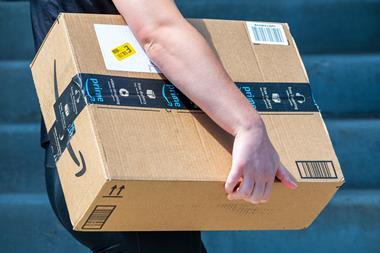Chris Boaz, head of marketing at PCA Predict, on the real impact of delivery failures and how to avoid them in 2018 and beyond.
The 2017 surge in online shopping has meant a huge increase in the number of parcels in transit – and a huge amount of failed deliveries.
After speaking to more than 300 retailers in the US, UK and Germany, ecommerce data expert PCA Predict (a GBG company) found that 65% of respondents identified failed or late deliveries as a significant cost to their business.
Failed deliveries can cost retailers in more ways than one.
“If you consider that 5% of all online orders don’t make it to the right person or place the first time around, these costs can quickly add up”
Over the past year alone, the average cost of a failed delivery to a retailer was $17.78 (£13.14).
Following a failed delivery, 54% of retailers will refund the delivery charges to the customer, 54% will pay additional costs for redelivery and 38% will offer the customer a discount as an apology.
If you consider that 5% of all online orders don’t make it to the right person or place the first time around, these costs can quickly add up.
UK businesses, in particular, pay the price for orders not arriving to their intended recipient the first time around, with 5.6% of orders not getting to their destination, and at an average cost to the retailer per failed delivery of £14.35.
These monetary costs, however, do not take into account the time spent processing refunds, arranging redeliveries or the damage to the retailer’s reputation that poor deliveries cause.
In the short term, retailers could lose existing customers, and if they continue to encounter issues with delivery, they could fail to acquire new ones further down the line.
Accurate data is key
So, what are the main causes of failed deliveries, and how can retailers prevent them?
According to PCA Predict’s research, inaccurate address data collection is the primary reason as to why orders do not arrive on time.
To counter the issues caused by incorrect address data, retailers should implement verification solutions to ensure customers provide data that is as accurate as possible.
Retailers also need to optimise their checkout process to be as simple, quick and user-friendly as possible.
Removing friction from the checkout process will significantly help to fix failed deliveries, much to the joy of retailers and customers alike.
Sign up today to receive your copy of PCA Predict’s global study on the impact of poor customer data, and learn how much inaccurate information could be costing your retail business.

Chris Boaz is head of marketing at PCA Predict




























